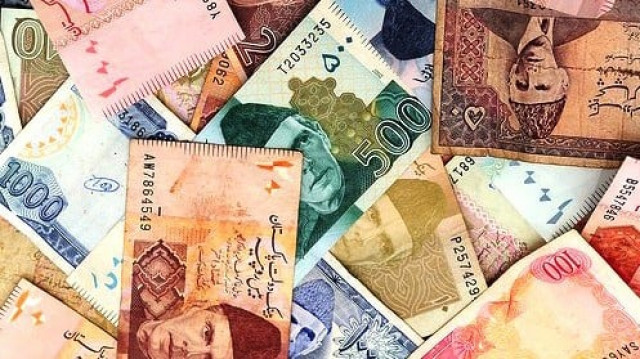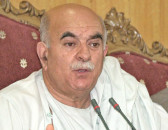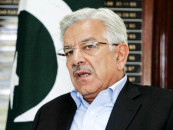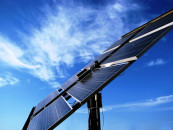Centre to pay provinces more than it collects
Centre distributes Rs136 against a collection of every Rs100 on account of tax on services.

Centre to pay provinces more than it collects
The document concluding agreement between provinces and the Centre on a formula to distribute the revenue collected under the reformed GST reveals that the federal government has agreed to this “strange” arrangement.
According to a written understanding on four services, namely, financial, advertising, construction and franchise, the Centre would collect the tax, keep it in a separate pool and distribute it among the provinces under a formula that allows payments to exceed receipts. The formula stipulates that Punjab will receive 60.39 per cent of the total collection on services by the Centre, Sindh 50 per cent, Khyber-Pakhtunkhwa 15.62 per cent and Balochistan 10 per cent of the total receipts, bringing the total to 136.01 per cent.
“In the maiden meeting of the committee constituted by the prime minister, whatever was demanded by each province the Centre readily agreed to,” said a participant of the meeting.
“This the Centre did to reach an agreement before October as desired by the IMF and other bilateral donors, who had threatened to block the money,” he added. The IMF has suspended the $11.3 billion bailout programme due to delay in the implementation of the reformed GST, which promises to tax all services and withdraw exemptions on sale of certain goods.
On July 28, Prime Minister Yousaf Raza Gilani had constituted a committee under the chair of the finance minister on the issue of implementation of the reformed General Sales Tax. He directed the minister to finalise the report by August 11. However, Hafeez Shaikh went on a personal business tour and returned a couple of days before the expiry of the date. He held the first meeting of the committee on September 27 and took decisions in haste that would now result in the public purse bearing the burden of at least Rs4 billion this year.
The parties have agreed to complete the entire excise of drafting the federal and provincial laws by October 22. Consequently, the tax on all services and withdrawal of exemptions on goods would be done by November.
The documents show that the understanding on the issue has been reached only for this financial year. The federal government and the provinces would evolve a new formula for the next financial year.
Furthermore, it has been decided that all services that neither involve transactions across the provinces, nor constitute a significant proportion of refunds shall be described as standalone services and tax on these services would be collected by the provinces.
Those provinces that desire the federal government to collect the tax on their behalf would authorise the Centre through provincial legislation. Except for Sindh, the other three provinces have already framed such pieces of law.
The services that constitute a significant portion as input tax adjustments or involve across provinces, shall be delegated by the provinces to the Federal Board of Revenue for collection. These include financial services – banking, insurance, stock market transactions, advertising, construction and franchises. A committee of technical experts would determine the definition of significant portion.
The tax on all services would be charged at a rate of 17 per cent for first two years then it would be brought down to 15 per cent.
The telecommunication services would be credited directly by the telecom companies to the provinces on the basis of revenue generated on the basis of origin of service in each province. This sector is a major revenue spinner that generates 70-80 per cent of the revenue on services. The parties also defined the services as anything that is not a good and shall include but not limited to services listed in Pakistan Customs Tariff 2010-11.
These services include hotels, restaurants, marriage halls, lawns, clubs and caterers, advertisement on television, radio, facilities for travel including air and train, services provided or rendered for inland carriage of goods, business transactions provided by authorised persons, shipping agents, freight management, travel agents, shares transfer, property developers and promoters, courier services, contractors, beauty parlours, clinics, slimming clinics, laundries, dry cleaners, telecommunication services, banking companies, insurance companies, cooperative financing societies, modarabas, leasing companies, foreign exchange dealers, non-banking financial institutions, architects, town planners, consultants, pathological laboratories, medical diagnostic laboratories including X-rays, CT Scan, MR imaging, security agencies, credit rating agencies, stocker brokers, underwriters, commission agents, rent a car, prize bond dealers, designers, outdoor photographers, art painter, cable TV operators, auto workshops, car washing, healthcare centres, body massage centres, janitorial services, dredging services, franchise services and construction services.
Published in The Express Tribune, September 29th, 2010.



















COMMENTS
Comments are moderated and generally will be posted if they are on-topic and not abusive.
For more information, please see our Comments FAQ